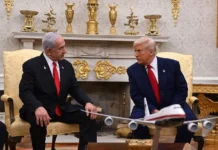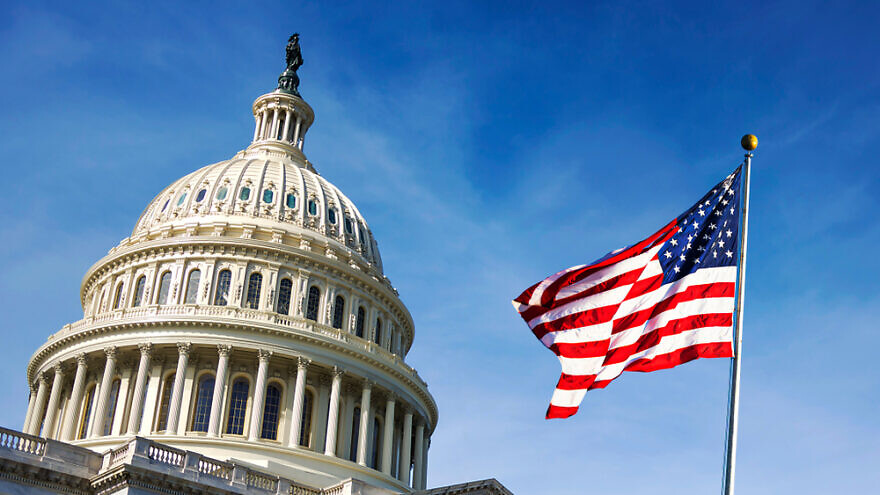As an agreement to rejoin the 2015 nuclear deal with Iran—the Joint Comprehensive Plan of Action, or JCPOA—appears to be forthcoming, a bipartisan group of 21 members of the U.S. House of Representatives sent a letter to U.S. President Joe Biden on Thursday expressing their dissatisfaction with reports about concessions the United States made to the Islamic Republic to arrive at the agreement.
Led by pro-Israel Reps. Josh Gottheimer (D-N.J.), Elaine Luria (D-Va.) and Tom Reed (R-N.Y.), the members stated in the letter, which was also sent to U.S. Secretary of State Antony Blinken, that many of them hoped the administration would deliver on its campaign promise of a longer and stronger deal that not only provided nuclear restrictions but also addressed Iran’s ballistic-missile program and sponsorship of international terrorism.
Instead, reports have indicated that the new deal addresses none of those concerns while likely providing billions of dollars in sanctions relief, in addition to lifting the Foreign Terrorist Organization designation for the Islamic Revolutionary Guard Corps (IRGC) and sanctions on members of the office of the Supreme Leader, Ayatollah Ali Khamenei.
Such a deal “would be providing a clear path for Iranian proxies to continue fueling terrorism,” wrote the authors of the letter.
“We will review any agreement closely, but from what we currently understand, it is hard to envision supporting an agreement along the lines being publicly discussed,” stated the letter. “As the [U.S.] State Department has often noted in reference to a nuclear agreement with Iran, ‘nothing is agreed until everything is agreed.’ We hope that no agreement is finalized without additionally addressing these concerns.”
The letter then asked the administration 16 questions it said were contingent on the group’s support of the deal and requested that the administration brief Congress with its answers within the next week. The questions focused on the administration’s expectation of Iran’s breakout time from now until 2031, with various years in between representing the expirations of critical sunset provisions on Iran set forth in the original 2015 deal, which reportedly have not been changed despite Iran’s significant progress in nuclear enrichment since that time.
Other questions focused on benefits to Russia, an Iranian ally that helped negotiate the new accord and is now at odds with the United States and its European allies following its military invasion of Ukraine.
The authors also asked the administration if the agreement would be presented to Congress for its approval in accordance with the Iran Nuclear Agreement Review Act (INARA), with the letter stating that the proper oversight role of Congress must be respected.
Joining Gottheimer, Luria and Reed on the letter are Reps. Juan Vargas (D-Calif.), Darren Soto (D-Fla.), Haley Stevens (D-Mich.), Vicente Gonzalez (D-Texas), Jim Costa (D-Calif.), Peter Meijer (R-Mich.), Brian Fitzpatrick (R-Pa.), Donald Norcross (D-N.J.), Don Bacon (R-Neb.), Susie Lee (D-Nev.), Dean Phillips (D-Minn.), David Joyce (R-Ohio), Anthony Gonzalez (R-Ohio), Fred Upton (R-Mich.), Dan Meuser (R-Pa.), Thomas Suozzi (D-N.Y.), Jaime Herrera Beutler (R-Wash.) and Jared Golden (D-Maine).

























